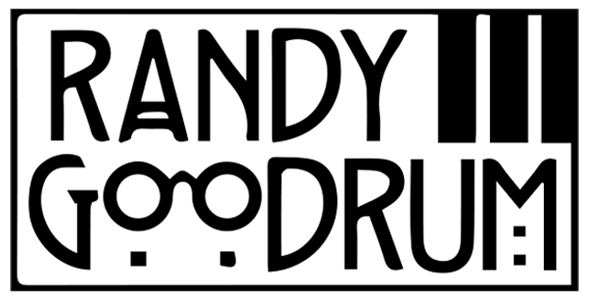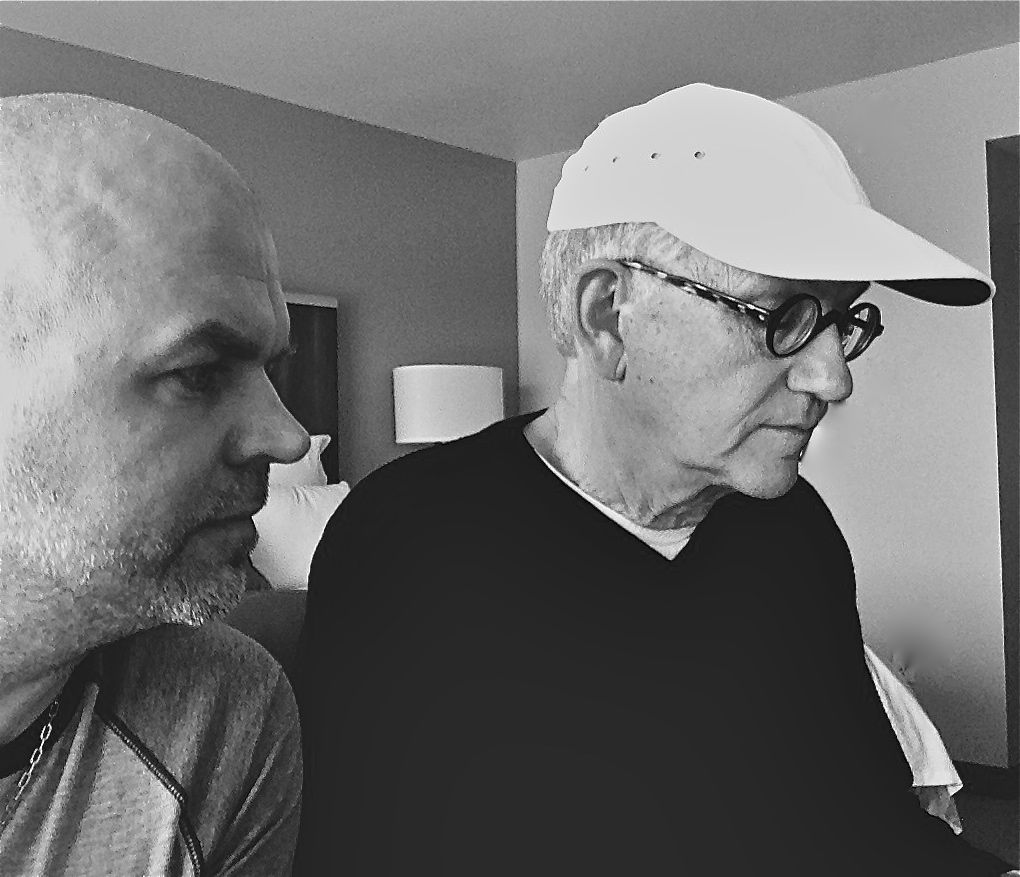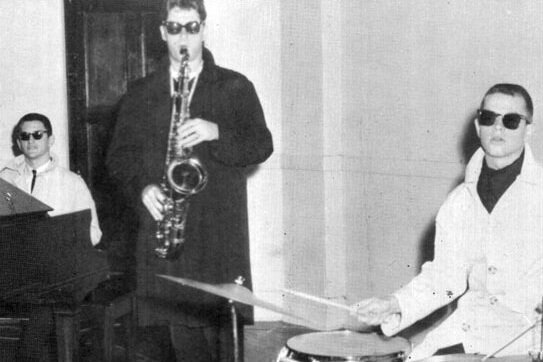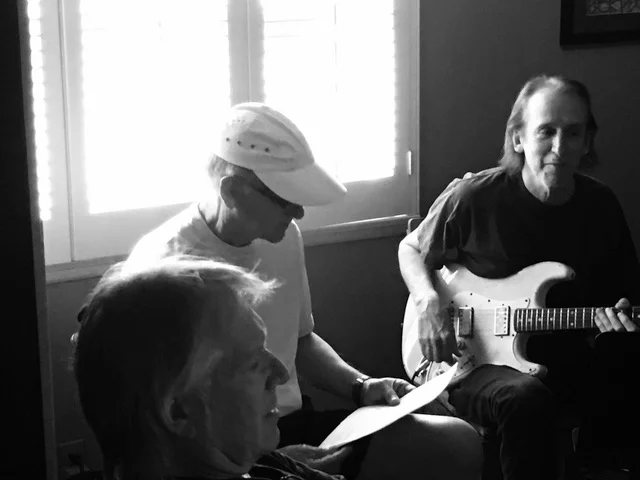Randy Goodrum might be best known for putting words in other people’s mouths. And for good measure, he’s also equally adept at providing an accompanying melody.
"I try to keep it simple and cover a lot of ground with a few words. I am motivated to find that sliver of a story that hasn’t been told before."
Like many professional songwriters, Goodrum may not be a household name, but ask George Benson, Toto, Chicago, Steve Perry or Anne Murray about this hall of fame songwriter's career chops and Randy’s marquee shines plenty bright. Add to that musician credits like playing keyboards for Perry Como, Jerry Reed, Chet Atkins, Les Paul, Kenny Rogers and Olivia Newton-John—alongside countless industry accolades—and it’s clear there are precious few musical scribes with as polished a pedigree.“I realized from an early age that I had a natural ability not only to play music, but also to create melodies pretty quickly and add words as a way of venting or putting down emotions that fit the rhythms,”Goodrum says. “From the beginning of my journey as a jazz musician, I applied the ethic to songwriting of being 100% original and 0% derivative.” And thus: songs.From there, he says the innate ability to create music “morphed into something. I began to feel like a method actor. I find the passion to write about things that haven’t necessarily happened to me, I create characters for my songs.”Goodrum’s “method” has left its mark.
The Arkansas native, who has also lived and worked in Nashville, coastal Connecticut and Los Angeles and now again resides in his home state, has the extraordinary distinction of scoring top 10 hits across four consecutive decades.Among his roster of chart-toppers, in the 1970s, Goodrum penned Anne Murray’s “You Needed Me” and "Broken Hearted Me,” Michael Johnson’s “Bluer Than Blue” and England Dan & John Ford Coley’s "It’s Sad to Belong.”In the 1980s, he helped forge the mammoth success of Steve Perry’s “Oh Sherrie” and "Foolish Heart,” DeBarge’s “Who’s Holding Donna Now,” Toto’s "I’ll Be Over You” and Chicago’s “If She Would Have Been Faithful…”The 1990s brought more country kudos, with John Berry’s “I Will, If You Will” and Jo Dee Messina’s “Lesson In Leaving,” followed by 2006’s global top 5 and U.K. No. 6 smash “All Over Again” from Irish pop singer Ronan Keating. Add to Goodrum’s four-decade coup a full breadth of music genres:
It is almost unimaginable that one songwriter has done time at top 40, adult contemporary, country, rock, jazz and R&B radio.
And while Goodrum’s hits are appreciable, so is his legacy. In addition to the chart-busters, his songs have been recorded by more than 100 brand-name acts: Kenny Rogers, Barry Manilow, Natalie Cole, Olivia Newton-John, Tammy Wynette, Ray Charles, Dusty Springfield, Gladys Knight, Patti Austin, Dave Grusin, Judy Collins, Isaac Hayes, Michael McDonald and Dottie West (including, for the latter, writing and co-production of three career-defining albums in the ‘70s).
"People can be quite profound in everyday conversation. Pretty language trying to be impressive looks good on paper, but it’s not as moving as an everyday expression."
Asked to impart his mojo, Goodrum explains: “I admired the writing of Hal David, Johnny Mercer, Sammy Cahn and Irving Berlin. I tried to follow their example to keep it simple and cover a lot of ground with a few words. I am motivated to find that sliver of a story that hasn’t been told before.” He adds that songwriting is conversational at its best, “not poetry", because people can be quite profound in everyday conversation. Pretty language trying to be impressive looks good on paper, but it’s not as moving as an everyday expression.”Goodrum’s dictum comes with plenty of career kudos to back his talent. He left hometown Hot Springs, AR, in the mid ‘60s to major in piano at Hendrix College in Conway, AR. He also attended Boston’s acclaimed Berklee School Of Music on a Down Beat Magazine scholarship.
Inherently a talented jazz player, Goodrum reeled in his improvisational style and developed into a lyricist known for conjuring up memorable melodies. Randy started his professional career as a studio musician in Nashville, while also finding gigs on the road playing with Roy Orbison, Chet Atkins, and Jerry Reed. As a burgeoning Music City musician, solo writing and collaborating with other talented scribes came organically, and Goodrum’s business card title soon led with “songwriter.” His first major hit: England Dan & John Ford Coley’s 1977 "It’s Sad to Belong,” which spent five weeks at No. 1 at AC and reached top 40’s top 15. Next came Michael Johnson’s “Bluer Than Blue,” another AC chart-topper and top 15 pop hit, and in 1978, Gene Cotton’s biggest career hit, “Before My Heart Finds Out,” No. 3 at AC and No. 23 on the Billboard Hot 100.The best was yet to come, as they say. As the writer of Anne Murray’s “You Needed Me,”Goodrum emerged in 1978 as royalty within the AC, pop and country pantheon. His ballad, produced by Jim Ed Norman, not only resuscitated the singer’s career, but it hit No. 1 on the Hot 100, top 5 at country and AC; earned the Best Female Pop Vocal Grammy; and was named the Academy of Country Music Song of the Year.
From there, Goodrum’s chart stats are a matter of record—as is his recognition. He was named 1981’s ASCAP Country Writer of the Year, with a cover story in Songwriter Magazine and generous ink in The Hollywood Reporter, People and Country Music magazines. He served as president of the Nashville Songwriters Association International, was inducted into the Nashville Songwriters Association Hall of Fame—and for fun, with buddy and jazz legend Dave Grusin, he wrote the theme to soap “One Life To Live.” Oh, and Clive Davis signed him as a solo artist at Arista, followed by a contract with Polydor, where Goodrum released his first solo album, “Fool’s Paradise.”Moving into the next decade, in 1983, Steve Perry called upon Goodrum to re-craft the Journey lead singer’s sonic persona for debut solo album “Street Talk.” “I figured we’d meet, have a cup of coffee and have a very brief writing session; however, I played for him what became the intro to ‘Foolish Heart’ and by 11 that night we had a demo. I was able to help Steve find that musical space that separated him from Journey.” Over the next four days, they wrote four songs. In all, Goodrum co-wrote eight songs on the album, including “Oh Sherrie,” a No. 1 rock single that reached No. 3 at pop; while “Foolish Heart” peaked at No. 2 at AC and top 20 on the Hot 100.
Away from the charts, Goodrum was invited to write songs for the ‘92 and ’96 Bill Clinton/Al Gore presidential campaigns, including the closing theme of the ’92 Democratic Convention; and the theme for President Bill Clinton’s First Inaugural Gala, which aired on CBS.The connection was personal: Goodrum and Clinton were classmates—and bandmates—at Hot Springs High School in Arkansas. Lofty credits, right? Goodrum chuckles, “Sure I’m proud of the songs I’ve been involved with that have held rank on the charts, but what matters more is hearing my songs in a supermarket or on an elevator or while getting my teeth cleaned. To know they live on in people’s lives… that’s what feels like success as a songwriter.”Hearing those hits on the radio now is among the most gratifying—and tangible—triumphs of Goodrum’s acclaimed career. He adds, “It’s the most satisfying thing you can imagine when a song still sounds relevant and not dated. That brings me a sense of achievement you can’t put into words.” Case in point: “Who’s Holding Donna Now,” a No. 1 AC, No. 2 R&B and No. 6 pop hit in 1985 for DeBarge, which he wrote with David Foster and the song’s producer Jay Graydon: “I regard that as one of the most perfect records I’ve been involved with: the vocal performance, the track and the production. I love it when it all turns out just right, like a fine recipe. It still sounds great on the radio. But you never know in the moment how it’s going to work out.”
Goodrum continues to cook up new work—and his next mission is personal. Following solo singles and albums released by Arista in the late 70s, Polydor in 1980 and an LP “Solitary Nights” on GRP in 1985, he issued a collaboration in 2008 as JaR with longtime collaborator Jay Graydon (a.k.a. Jay and Randy). In 2016, the pair is working on a follow-up JaR project, due next year.Chances are, those songs will fulfill the same missive that has guided Goodrum’s successes since 1977. He notes, “When I moved to Nashville as a pianist, I was this abstract jazz guy—struck by the power of these folks coming from small towns and remote places who weren’t terribly musically sophisticated, but their lyrics were simple and economical and said so much with so little. I still try to deliver that in every song. When I hear "You Needed Me" or "I’ll Be Over You", I feel like I got it right. Those are two songs I’ll listen to all the way through on the radio. Both the lyric and the melody must matter.”
By Chuck Taylor 08.16
Search Randy Goodrum on Wikipedia
Download a text PDF of Randy's Bio Here








